Fostering scientific communities in Latin America to strengthen single cell genomics practice
Championing careers through global learning and training initiatives
In this two-part interview, meet five members of our Latin American single cell genomics community, and explore their development through our learning and training programme, from Brazil to the UK.
As part of the Wellcome Connecting Science (WCS) learning and training agenda we are committed to bringing together scientists from diverse backgrounds, across the globe, to develop essential skills in a variety of genomics disciplines. One of our goals is to enable improved research outcomes through training that considers genetic diversity.
In July 2023, we held a Single Cell Genomics course, in Rio de Janeiro, Brazil, in collaboration with the Instituto Nacional de Câncer (INCA), Patricia Possik, an investigator at INCA, Mariana Boroni, an associate researcher at INCA, and colleagues from the Wellcome Sanger Institute, focusing on the application of single cell technologies to address the needs of Latin American communities.
How was the course was developed for Latin American populations?
There are many disorders and pathogens found specifically within this environment. The application of single cell sequencing technologies would allow the answering of many questions that are relevant to Latin American populations.
David Adams, Wellcome Sanger Institute, UK.
Alongside local experts, we delivered this training to a small group of researchers working in the region, through hands-on laboratory and computational sessions, building capacity in many different aspects of single cell genomics.
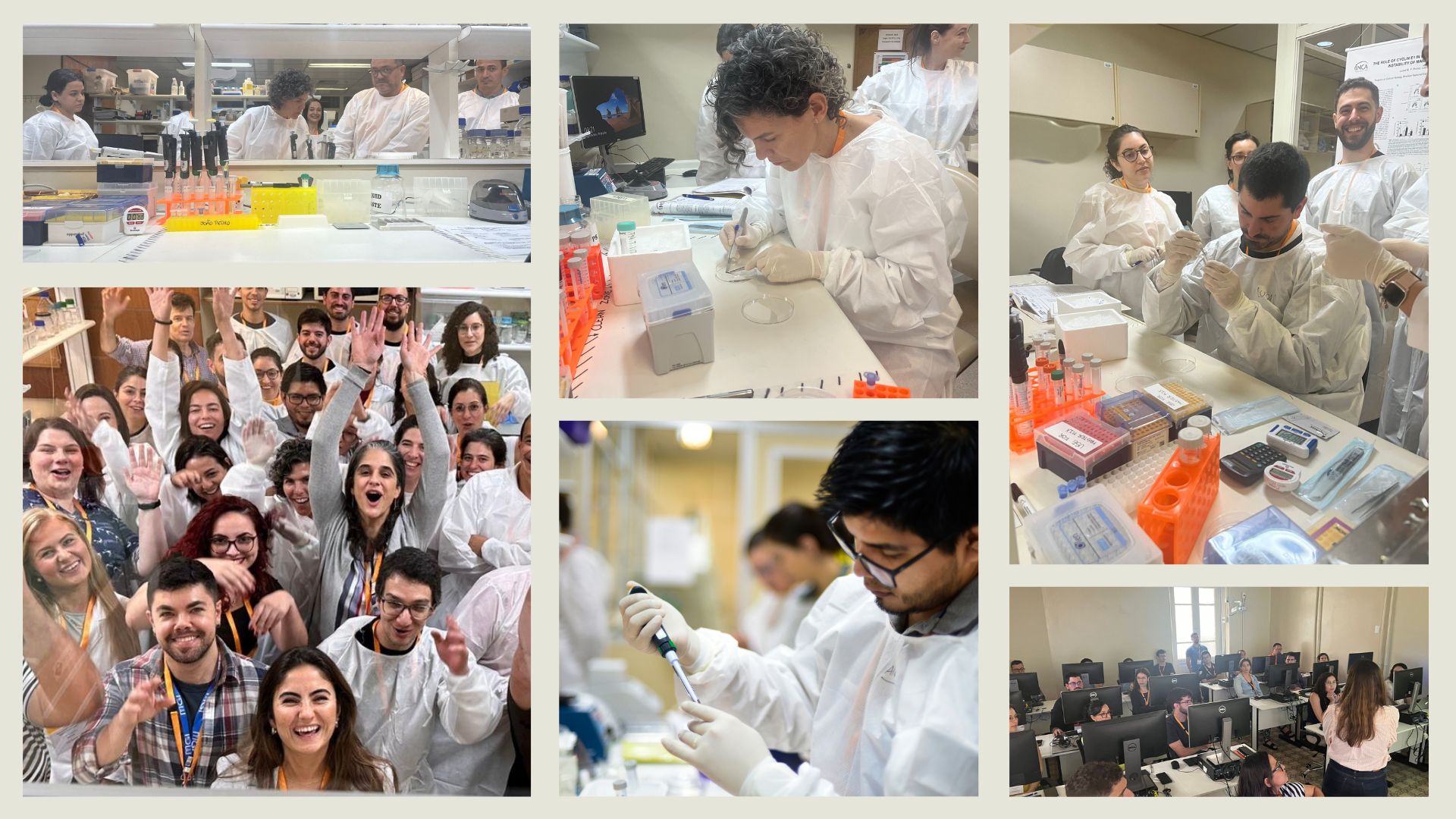
I was delighted to organise and teach the single cell RNA sequencing course at INCA, together with WCS. It’s inspiring to see the significant impacts of this initiative, with champions already incorporating the knowledge they’ve received and preparing to share it with others.
Mariana Boroni, INCA, Brazil
Recognising that technical skills alone cannot guarantee a successful scientific career, we rounded off the course with a grant writing workshop, sponsored by the Chan Zuckerberg Initiative (CZI), encouraging participants to devise a proposal to support their own research, through the lens of single cell genomics.
These scientists are laying the groundwork to accelerate scientific discovery by facilitating uncharted global collaborations. We’re grateful for the opportunity to support their efforts and uplift the Latin American single-cell research ecosystem.
Ivana Jelic, Chan Zuckerberg Initiative, USA
Recently, we had the opportunity to catch up with five of our workshop participants who were awarded prizes for their outstanding grant writing efforts. Thanks to generous funding from CZI, each of these talented scientists won a sponsored place to attend our Single Cell Biology conference, which took place at Hinxton Hall Conference Centre, at our home on the Wellcome Genome Campus, UK, in June 2024.
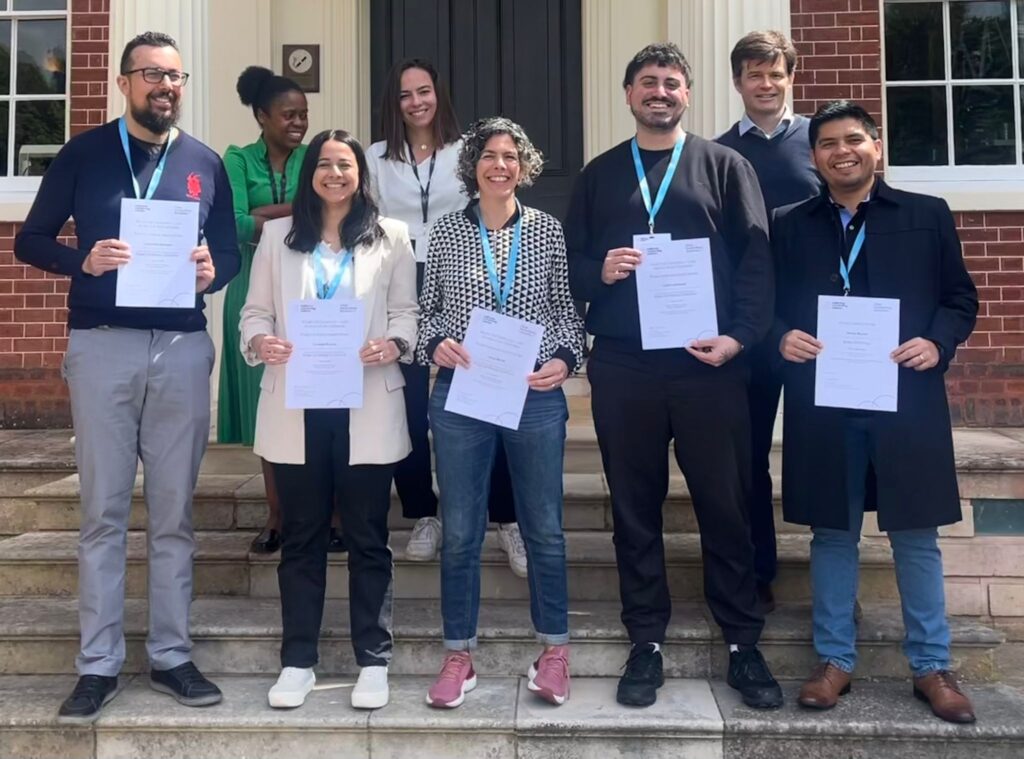
At the conference, participants had the opportunity to present their research during a poster pitch session, as part of the main conference programme, as well as discuss their ideas during the various networking sessions, with peers and leaders working in single cell biology.
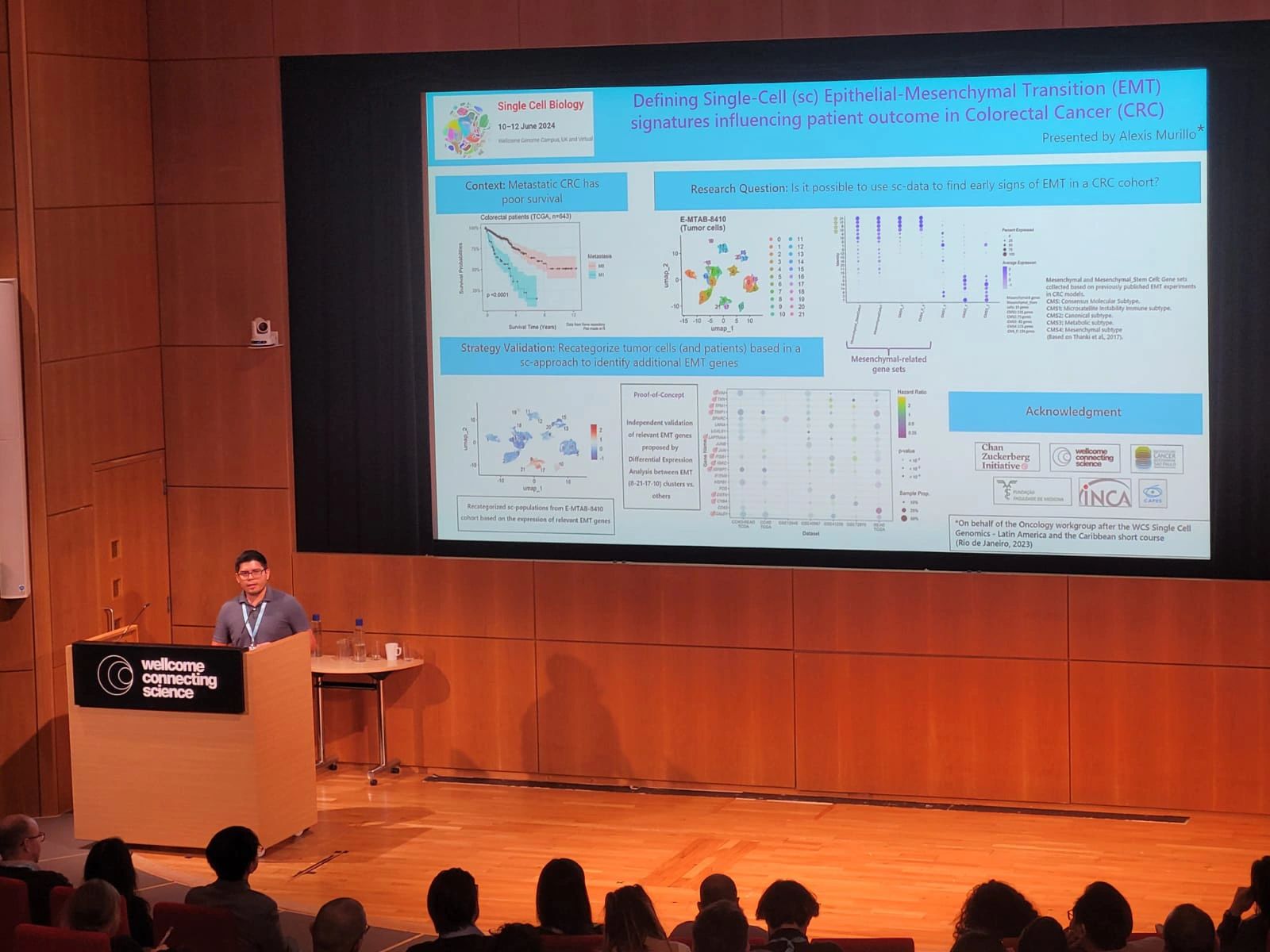
In part one of this interview, Alexis Murillo Carrasco, Leonardo Sanches, and Lucas Inchausti Ravella, share their insights about what they learned on their single cell genomics journey with us, all the way from the Instituto Nacional de Câncer (INCA), Brazil, to the Wellcome Genome Campus, UK. Plus, you will hear about the impacts this has delivered for their respective institutions, as well as their own personal career development.
I believe participating at the Single Cell Genomics course has positively boosted my career. It was important for forming collaborative ties with researchers from different institutions!
Alexis Murillo Carrasco, ICESP, Brazil
Meet the interviewees
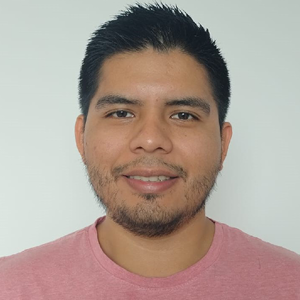
Alexis Murillo Carrasco has a PhD in oncology from the University of São Paulo and is currently working as a researcher at the Instituto del Cancer del Estado de São Paulo (ICESP).
He also mentors other scientists through several different Latin American initiatives including: Cientifico Latino program, SEH2Bioinfo, and the Immunology and Cancer research group, Immuca.
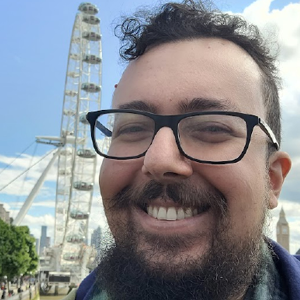
Leonardo Sanches is a PhD student studying biochemistry at the Laboratório de Pesquisas Integradas em Sinalização Celular e Câncer (LAPIC), University of São Paulo. His research focuses on the functionality of cancer-associated long non-coding RNAs, through co-expression network analysis. He also works as a bioinformatician at the Laboratory of Genetics and Molecular Cardiology, performing downstream transcriptomics and single-cell analysis.
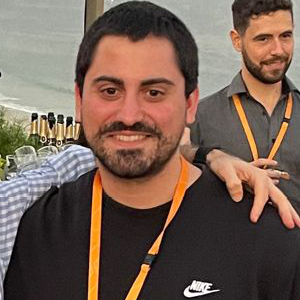
Lucas Inchausti Ravela is a PhD student studying bioinformatics at the Instituto de Investigaciones Biológicas Clemente Estable in Uruguay. His primary area of expertise lies in the analysis of high-throughput sequencing data, primarily gene expression data, and his current research focus is on mechanisms and translational regulation of the Trypanosoma cruzi parasite.
How has participation at last year’s Single Cell Genomics course benefitted your work and career so far?
Alexis: With the knowledge I acquired at the course, I was able to implement single cell secondary analysis to strengthen the rationale of some proposals in my laboratory at ICESP.
As a result, we applied single cell analysis to characterise co-expressed genes in the context of a specific cell type in the skin tissue, using data provided by the Tabula Sapiens (supported by CZI’s Cell Science program and the Chan Zuckerberg Biohub San Francisco).
Furthermore, we are working on a proposal to identify genes relevant to the process of epithelial-to-mesenchymal transition in colorectal cancer; which I presented for discussion at the WCS Single Cell Biology conference.
This experience also inspired capacity building in my home country of Peru, where I now organise events to encourage scientific sharing among Peruvian undergraduate students. Some of my colleagues I met on the Single Cell Genomics course have even been invited to showcase their cancer-related studies, at a virtual Spanish event. It has been an enriching and insightful experience!
Leonardo: As the first course of this kind to be offered in Brazil, it gave me access to hands-on training in both wet lab and bioinformatics, which was previously really hard to find in this new field.
Beyond that, the course instructors encouraged networking with great researchers, leading to numerous discussions and opportunities for me. Plus, I was able to talk through a problem I needed to solve for my PhD, and received great suggestions, so I now feel armed with the right tools to progress in this field.
I’m still in my PhD, but this course provided an incredible opportunity: I got a part-time job as a bioinformatician at a leading hospital in São Paulo, and my knowledge of single cell analysis was a key factor in my hiring.
Leonardo Sanches, University of São Paulo, Brazil
Lucas: Participating in the Single Cell Genomics course has been an amazing experience for my career and scientific work. The skills I acquired during the course have directly contributed to the improvement of my research. In fact, I have been able to implement advanced single-cell RNA sequencing methods in my lab, particularly the data analysis techniques learned during the course, which have led to comprehensive insights into cellular heterogeneity in our studies of Trypanosoma cruzi.
Beyond research activities, the networking opportunities provided by the course have been invaluable. I have stayed in touch with some participants and instructors, both from Latin America and the UK, and we have also met at other conferences. These connections have significantly expanded my professional network, providing me with future collaboration opportunities. Notably, it has strengthened my academic relationship with Luisa Berná, with whom we won the best grant award in the course and now we are considering single cell projects to pursue together.
How has the session on grant writing supported your career so far?
Alexis: It has strengthened my ability to produce a thorough project plan that supports the delivery of the whole scientific workflow from running experiments to publishing.
As a curious story, while I was at the WCS Single Cell Biology conference, researchers from my lab were submitting documentation to apply for some high-risk, high-reward funding. I applied the grant writing lessons and single-cell-based analyses to strengthen a part of the rationale of that proposal. So, fingers crossed to have good news in the next few months!
Leonardo: I am more confident not only in writing a project, but also in understanding the nuances of grant writing for international institutions.
Plus, being awarded funding to attend the Single Cell Biology conference, was a unique opportunity to witness cutting-edge work in the field and meet prestigious researchers. I have even had some collaboration opportunities, which I am planning to make the most of in collaboration with David Adam’s Experimental Cancer Genetics group, Wellcome Sanger Institute!
I have been very inspired by this unique experience, and it has completely changed my view of science for the better.
Lucas: I cannot explain in words what winning has meant to me. I clearly remember the moment when David Adams announced the winners. I was drinking my caipirinha, thinking, “Let’s hear which of my outstanding fellows is going to the UK next year!” I could not believe it when David came up with my name… It was a very emotional moment.
The recognition was especially important to me, as I come from a country with limited funding for science and technology, and attending this type of international conference is very challenging for us due to financial constraints.
Since the grant writing session, I have participated in writing several grant proposals in my country, and applied the strategies I learned in that session – significantly improving their quality and coherence.
How was your experience presenting a poster at our Single Cell Biology conference?
Alexis: It was very inspiring and productive! I had one minute to call the audience’s attention and it worked! I think it was a good strategy, as I feel I received more interactions than usual.
The diversity of the research fields and single cell perspectives the other delegates at the conference were involved in, supported a broad discussion about the biological, technical, clinical, and communicating approaches of my study – which was essential. Certainly, I will send all suggestions to my group to be discussed.
In terms of the project that I presented at the conference, we are now in the moment to include new assays and analyses between selecting genes to be part of an in situ experimental validation, with experimental and clinical approaches. So, the feedback we received is crucial to guide our next steps. For example, the implementation of cell-communication analysis to understand how epithelial cells migrating to mesenchymal states are modulating the tumour microenvironment.
In addition, I met new researchers who are interested in contributing to our study, and also others who asked about the analytical scripts that we used for this project, and how we can offer them as analytical custom tools for other applications.
These in-person highly interactive activities were highly productive for me and the group of researchers that I represented in this study at the conference
Alexis Murillo Carrasco, ICESP, Brazil
Leonardo: It was incredible to see my poster among the leading works in this field. I interacted with researchers from several countries with impressive backgrounds, and received valuable feedback on my work.
It was a unique experience, allowing me to see cutting-edge techniques and unpublished works that demonstrate where and how single cell analysis will be used in the future. In the end, I made new connections and potential collaborations.
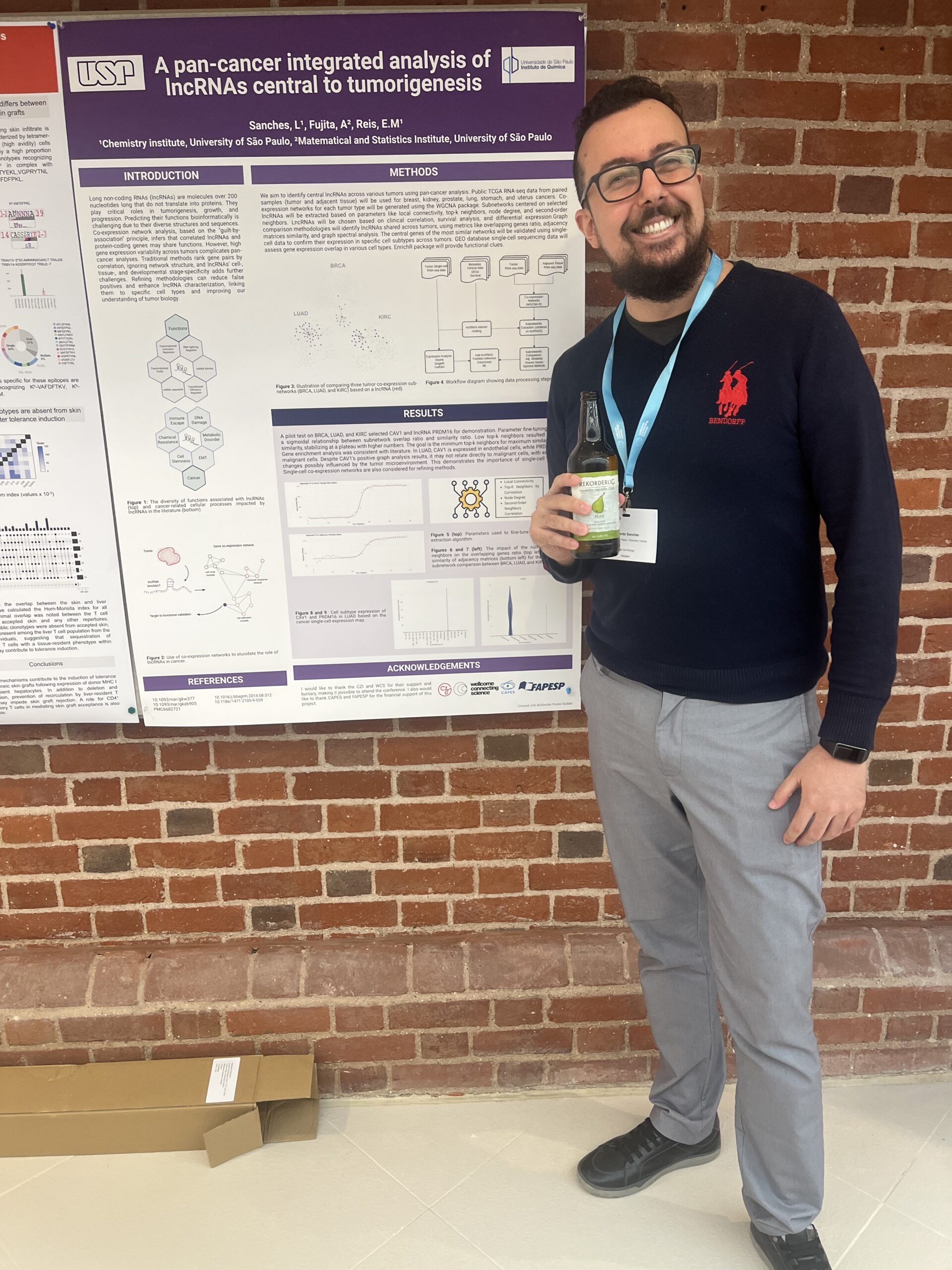
The interactions with researchers were amazing, and only possible because I was able to attend this conference in person.
Leonardo Sanches, University of São Paulo, Brazil
Lucas: Presenting a poster at a global conference was an incredibly enriching experience I had never encountered before. It provided a platform to observe research and ideas from top research groups and to showcase ideas from Uruguayan science.
What were your highlights from attending the Single Cell Biology conference?
Leonardo: The pitch talks and poster sessions were fascinating, providing numerous insights into various projects. It is not every day that we can see so many top researchers together, discussing the applications of cutting-edge single cell techniques in diverse areas.
Lucas: I received a lot of constructive feedback from experts in the field, which was key for refining my work. The suggestions and questions posed by attendees helped me to identify areas for improvement and consider new perspectives that I had not previously explored.
In addition, the conference was an excellent opportunity to network. I made numerous new connections with fellow researchers and potential collaborators, and reconnected with some old ones, with whom we have strengthened our personal relations beyond academia.
Also, attending sessions on the latest advancements in single cell biology was enlightening. It provided fresh insights and ideas that I can integrate into my own research.
Attending the conference in person allowed for spontaneous and meaningful interactions that would not have been possible in a virtual setting.
Lucas Inchausti Ravella, Instituto de Investigaciones Biológicas Clemente Estable, Uruguay
Has your experience with the Connecting Science programme shaped your thinking about your career and future ambitions?
Alexis: Yes, before the course, I believed running single cell analysis would be time-consuming and require many computational requirements, and I was unable to apply single cell insights into my projects. I am now able to run resource-efficient analyses, access a collaborative server for heavier analyses, and support scientific hypotheses for bulk omics analyses, based on data stored on single-cell repositories.
My future ambition is to produce (or contribute to) our own single cell data; something we are planning as part of the project I presented at the Single Cell Biology conference.
Leonardo: Absolutely! Now, I am seriously considering pursuing a postdoc in Europe.
Lucas: The experience with the WCS programme, encompassing both the course and the conference, has significantly shaped my thinking about my career and future ambitions. In fact, having pursued my entire scientific career in Uruguay, I am now considering pursuing postdoctoral studies abroad.
Has training with Connecting Science enabled you to achieve something that would have otherwise been unattainable?
Alexis: Training with Connecting Science has allowed me to learn first-hand from leaders in the field of single cell biology. Plus, I have been able to hear about their experiences, and how they overcame different challenges, which has taught me approaches to succeed in my own work.
It has been an excellent opportunity to talk in person to many international colleagues simultaneously which would not be possible at all otherwise.
Alexis Murillo Carrasco, ICESP, Brazil
Leonardo: Everything I learned with Connecting Science has been invaluable, and I will carry it with me throughout my life!
Making connections with such great people would have been unattainable without this training. There are many amazing students in Latin America who don’t realise that there are great initiatives like this training. I always encourage others to seize these opportunities and not hesitate to contact researchers. I have learned how collaborative science is, and the first step is to reach out.
What is next for your career or training development?
Alexis: I intend to continue my training in single cell analysis, and also incorporate what I have learned so far with WCS into my current and future projects.
Regarding the project I presented at the WCS Single Cell Biology conference, I am going to share the feedback I received with my co-authors, so we can develop the work some more.
In addition, I am hoping to organise a virtual or hybrid session to teach what I have learnt about single cell genomics and transcriptomics to other scientists working in Peru.
Considering this country’s participation in the Jaguar project (supported by CZI), I would like to invite researchers and peers I met at the conference, to share their knowledge with other young scientists, in the same practical and friendly environment as I experienced at the conference.
Leonardo: I hope to continue my research on oncogenic lncRNAs, and I feel more confident about incorporating single cell data into my work.
In part two (September 2024), you will hear more experiences from our final two grant writing awardees, Caroline Poubel and Luisa Berná, and learn more about how we are continuing to support this community through webinars and a Single Cell LatAm Symposium, which will reunite participants from the course.
If you are interested in reading more about the activities that took place during the 2023 Single Cell Genomics course, click here to read our Single Cells, sequencing and samba in Rio de Janeiro blog article.
